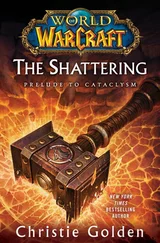Gerald Kersh - Prelude To A Certain Midnight
Здесь есть возможность читать онлайн «Gerald Kersh - Prelude To A Certain Midnight» весь текст электронной книги совершенно бесплатно (целиком полную версию без сокращений). В некоторых случаях можно слушать аудио, скачать через торрент в формате fb2 и присутствует краткое содержание. Жанр: Старинная литература, на английском языке. Описание произведения, (предисловие) а так же отзывы посетителей доступны на портале библиотеки ЛибКат.
- Название:Prelude To A Certain Midnight
- Автор:
- Жанр:
- Год:неизвестен
- ISBN:нет данных
- Рейтинг книги:3 / 5. Голосов: 1
-
Избранное:Добавить в избранное
- Отзывы:
-
Ваша оценка:
- 60
- 1
- 2
- 3
- 4
- 5
Prelude To A Certain Midnight: краткое содержание, описание и аннотация
Предлагаем к чтению аннотацию, описание, краткое содержание или предисловие (зависит от того, что написал сам автор книги «Prelude To A Certain Midnight»). Если вы не нашли необходимую информацию о книге — напишите в комментариях, мы постараемся отыскать её.
Prelude To A Certain Midnight — читать онлайн бесплатно полную книгу (весь текст) целиком
Ниже представлен текст книги, разбитый по страницам. Система сохранения места последней прочитанной страницы, позволяет с удобством читать онлайн бесплатно книгу «Prelude To A Certain Midnight», без необходимости каждый раз заново искать на чём Вы остановились. Поставьте закладку, и сможете в любой момент перейти на страницу, на которой закончили чтение.
Интервал:
Закладка:
Tobit Osbert checked himself on the edge of one of his daydreams. No, there must be no daydreaming now, discipline above all things, self-control. He had an article to write for The Theoretician , which would be paid for on delivery. He needed the six guineas, and, as it happened, he really wanted to write the article, which was a critical one on the subject of books for the young. In this, too, there was to be found a certain refined pleasure, a titillation, an indefinable thrill, half intellectual and half voluptuous. So he saved his little daydream for later, and settled down to a survey of the works of Beatrix Potter. In a little while he would make a name for himself. Meanwhile there was enough to do to keep him occupied for three or four days — which was just as well, since his only presentable suit was at the cleaners. But by next week he would be able to buy himself a new suit. There was a tailor near Cambridge Circus who produced an excellent suit for five pounds. Tobit Osbert had his eye on a piece of gentlemanly drab cloth with the faintest, discreetest block check, which he planned to have made up — singlebreasted, perhaps, with two intriguing little slits in the tail of the jacket. Dare he have very narrow trousers, without turn-ups? That might convey an impression of elegant nonchalance. In such a get-up one might lounge about with a gay little scarf around the neck, and introduce oneself to anybody, with a free and easy sportsmanlike looseness in one’s manner of approach.
But enough! Discipline! No daydreams! To work!
All the same, he thought as he dipped his pen into the inkpot, the world is full of pleasures for a man who knows how to appreciate things. He would have gone to Sam Sabbatani for his new suit; but the fact of the matter was that he owed Sam a little money, and was going to owe him three-and-sixpence more in forty-eight hours.
And in this, too, there was refined pleasure.
43
Angry with herself and with all the world, Thea Olivia went back to Asta’s house in Frame Place by the river. She wanted to smash things and to kick people, herself first of all. She was a fool like her sister, she decided. She, Thea Olivia, the only sane girl in the family, had involved herself in something that was none of her business. She walked part of the way because she wanted to get the smell of Osbert’s room out of her nostrils. It was not that the room had a characteristic odour — far from it — but the air of the place, sucked dry by the gas fire, seemed to have got into the back of her nose, so that she was glad to draw deep breaths of the wet and smoky air of the streets. She had no doubt that Osbert had committed that murder. For one mad minute she toyed with the idea of going to the police and telling them what she knew. But then she asked herself: ‘What do I know?’
Everything; she knew everything, but she could prove nothing. Thea Olivia had read many crime stories — she had little to do but read — she realized that there was nothing to say, and shuddered at the thought of an interrogation in a cold greenpainted waiting-room. She could not even mention the affair to Asta. Asta would fly into a fury and rush everywhere in all directions at once, shouting at the top of her voice, raising scandal and making the most appalling scenes. If one gave Asta the merest sniff of suspicion she (so to speak) threw up her trunk and stuck out her ears and charged, screaming, like an elephant. It did not matter to Asta if she was proved to be wrong: she never admitted it and, even if forced to an admission, did not care. As a matter of fact, Asta loved a commotion for its own sake.
But the end of it would be that Thea Olivia would be dragged into this filthy affair; jostled into the witness-box, hauled into the Old Bailey and made to stand up to be cross-examined by sonic such deadly Counsel as Norman Birkett. And for what? A false alarm. It was not for nothing that she read the writings of the best informed authors of detective stories.
Now, if she went and told Asta, the whole world would be turned upside down before lunch-time. Apart from everything else, who knew what Scotland Yard had up its sleeve?
She was surprised to see that she had reached the Embankment. The grubby grey river slid away to the sea. She saw, through the heavy wet air that hung like damp gauze, the spidery outlines of a gas works and of two enormous cranes on the other side. Several sea-gulls, driven inland by the bad weather, were wheeling, screeching, over the dirty water. Thea Olivia decided, suddenly, that she wanted to go away. She wanted to visit Cousin Oxford Thundersley in Hampshire. She wanted to make friends with her grand-niece Olivia, who had been named after her because somebody had an eye on her money, and invite the girl to come with her on a long holiday, preferably to the south of France.
Thea Olivia hurried back to Asta’s house, and found that her sister had gone out. She asked Mrs Kipling to help her with her packing; gave The Tiger Fitzpatrick a pound note and told him to bring her luggage downstairs.
Then she picked up the cambric handkerchief, carried it at arm’s length to the fireplace and dropped it into the fire. It was still damp so it hissed like a snake; then writhed, shrivelled, caught fire, and in a second or two burnt away to a flake of ash which the draft whisked up the chimney and out into the heavy, threatening air of the sad, dripping city.
Then she sat at one of the little tables and wrote a note. In this note she said that she did not feel very well, because the unexpectedly damp weather was bringing on an attack of bronchitis, and so she was going away. No doubt it seemed strange to leave so abruptly, but Asta would, she was sure, understand and sympathize. She was leaving because she did not want to impose herself on Asta as a sick woman — Asta had so many demands on her already. With a couple of blessings and many expressions of affection Thea Olivia signed her name with a couple of x’s for kisses, put the note in an envelope and, in a taxi loaded with luggage, went off to Waterloo Station.
Asta came home at about four o’clock, read her sister’s note, and fell into what was, for her, a state of abstraction — she kicked a little table across the room, poked the fire until a great lump of blazing coal fell out, which she picked up with a pair of tongs that were too short, so that she burnt her fingers and threw the tongs across the room. She felt uneasy. She was convinced that Thea Olivia had been offended by the unconventional nature of the cocktail party of the previous evening. ‘If you don’t like it, lump it! If it doesn’t suit you, you can go to the dickens!’ she shouted in the empty room, and sat down to write an acrimonious letter which began:
My dearest Tot ,
I quite understand that I am not good enough for you and that my way of living is offensive to your very refined tastes, socalled. But —
‘Oh, to hell with it,’ she said, tore the sheet of paper into little pieces, squeezed the pieces into a ball and threw it into the fire.
After that, irritated and depressed, she went to the Bar Bacchus to have a drink and a chat, and there she met Osbert’s girl friend, Catchy, who was slouching at the bar looking tired and defiant — which meant that she was ashamed of herself.
At the end of the bar, by the wall, the stool next to the one on which Catchy was sitting was vacant. Asta Thundersley, squeezing past, laid a hand between the shoulders of Catchy, who started away with a cry of pain and a sickly smile and said: ‘Ohoh! No touchy!’
‘What the hell’s the matter with you?’ asked Asta.
Obviously it hurt Catchy to move her shoulders, so she shrugged one side of her face — hitched up her right cheek and let it drop — and said: ‘Oh, he-men, he-men…’
Читать дальшеИнтервал:
Закладка:
Похожие книги на «Prelude To A Certain Midnight»
Представляем Вашему вниманию похожие книги на «Prelude To A Certain Midnight» списком для выбора. Мы отобрали схожую по названию и смыслу литературу в надежде предоставить читателям больше вариантов отыскать новые, интересные, ещё непрочитанные произведения.
Обсуждение, отзывы о книге «Prelude To A Certain Midnight» и просто собственные мнения читателей. Оставьте ваши комментарии, напишите, что Вы думаете о произведении, его смысле или главных героях. Укажите что конкретно понравилось, а что нет, и почему Вы так считаете.








![Айзек Азимов - Прелюдия к Основанию [= Прелюдия к Академии // Prelude to Foundation]](/books/435122/ajzek-azimov-prelyudiya-k-osnovaniyu-prelyudiya-k-ak-thumb.webp)



